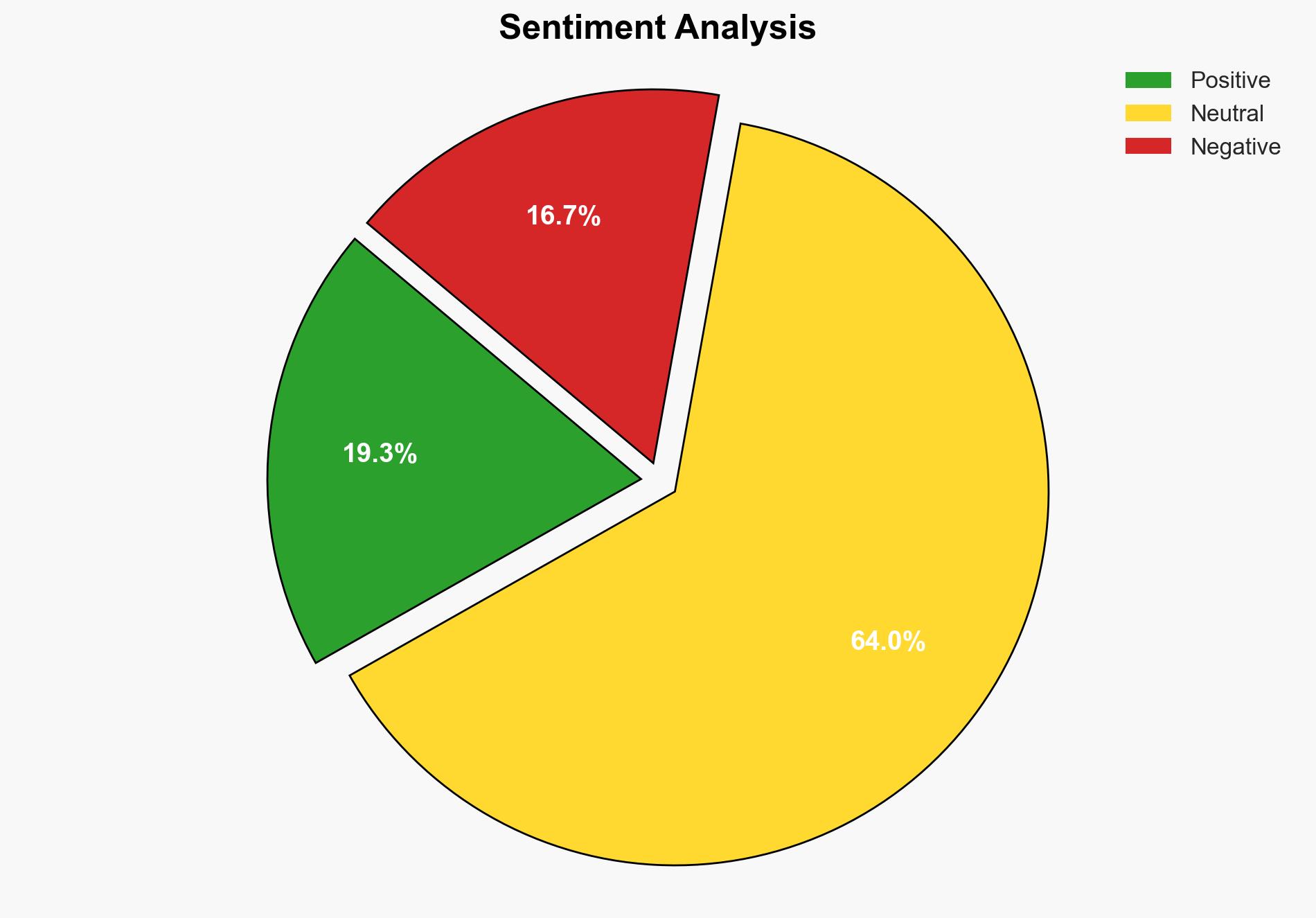Kurdistan region marks 37 years since Halabja massacre – The Jerusalem Post
Published on: 2025-03-16
Intelligence Report: Kurdistan region marks 37 years since Halabja massacre – The Jerusalem Post
1. BLUF (Bottom Line Up Front)
The Kurdistan region commemorates the 37th anniversary of the Halabja massacre, a pivotal event in Kurdish history marked by the chemical attack orchestrated by the regime of Saddam Hussein. This commemoration highlights ongoing demands for justice and compensation for victims, alongside broader regional tensions involving Kurdish identity and autonomy. The event underscores the enduring struggle for Kurdish rights across Iraq, Syria, and Turkey, with implications for regional stability and international relations.
2. Detailed Analysis
The following structured analytic techniques have been applied for this analysis:
General Analysis
The Halabja massacre remains a significant symbol of Kurdish resistance and suffering. The attack, part of the Anfal campaign, resulted in the deaths of thousands and was aimed at eradicating Kurdish identity. The commemoration serves as a reminder of historical grievances and the ongoing quest for recognition and compensation from the Iraqi government. Additionally, the event coincides with the Newroz celebrations, symbolizing Kurdish unity and resilience. The political landscape in the region is influenced by historical persecution, with current Kurdish entities in Iraq and Syria seeking greater autonomy and recognition.
3. Implications and Strategic Risks
The commemoration of the Halabja massacre poses several strategic risks and implications:
- Regional Stability: The event highlights ongoing tensions between Kurdish populations and central governments in Iraq, Syria, and Turkey, potentially exacerbating regional instability.
- National Security: The Kurdish pursuit of autonomy may lead to increased friction with neighboring states, impacting security dynamics in the Middle East.
- Economic Interests: Continued unrest could disrupt economic activities, particularly in areas with significant Kurdish populations and resources.
4. Recommendations and Outlook
Recommendations:
- Encourage diplomatic engagement between Kurdish leaders and central governments to address historical grievances and seek peaceful resolutions.
- Support initiatives that promote cultural recognition and economic development in Kurdish regions to foster stability.
- Monitor regional developments closely to anticipate potential escalations and mitigate risks to international interests.
Outlook:
Best-case scenario: Increased dialogue leads to improved relations and greater autonomy for Kurdish regions, contributing to regional stability.
Worst-case scenario: Escalating tensions result in conflict, destabilizing the region and impacting global economic interests.
Most likely outcome: Continued negotiations with intermittent tensions, with gradual progress towards recognition and compensation for historical injustices.
5. Key Individuals and Entities
The report mentions significant individuals and organizations, including Nechirvan Barzani, who emphasized the importance of honoring the victims of the Halabja massacre and called for compensation from Baghdad. The commemoration also involves Kurdish leaders advocating for recognition and justice for past atrocities.





